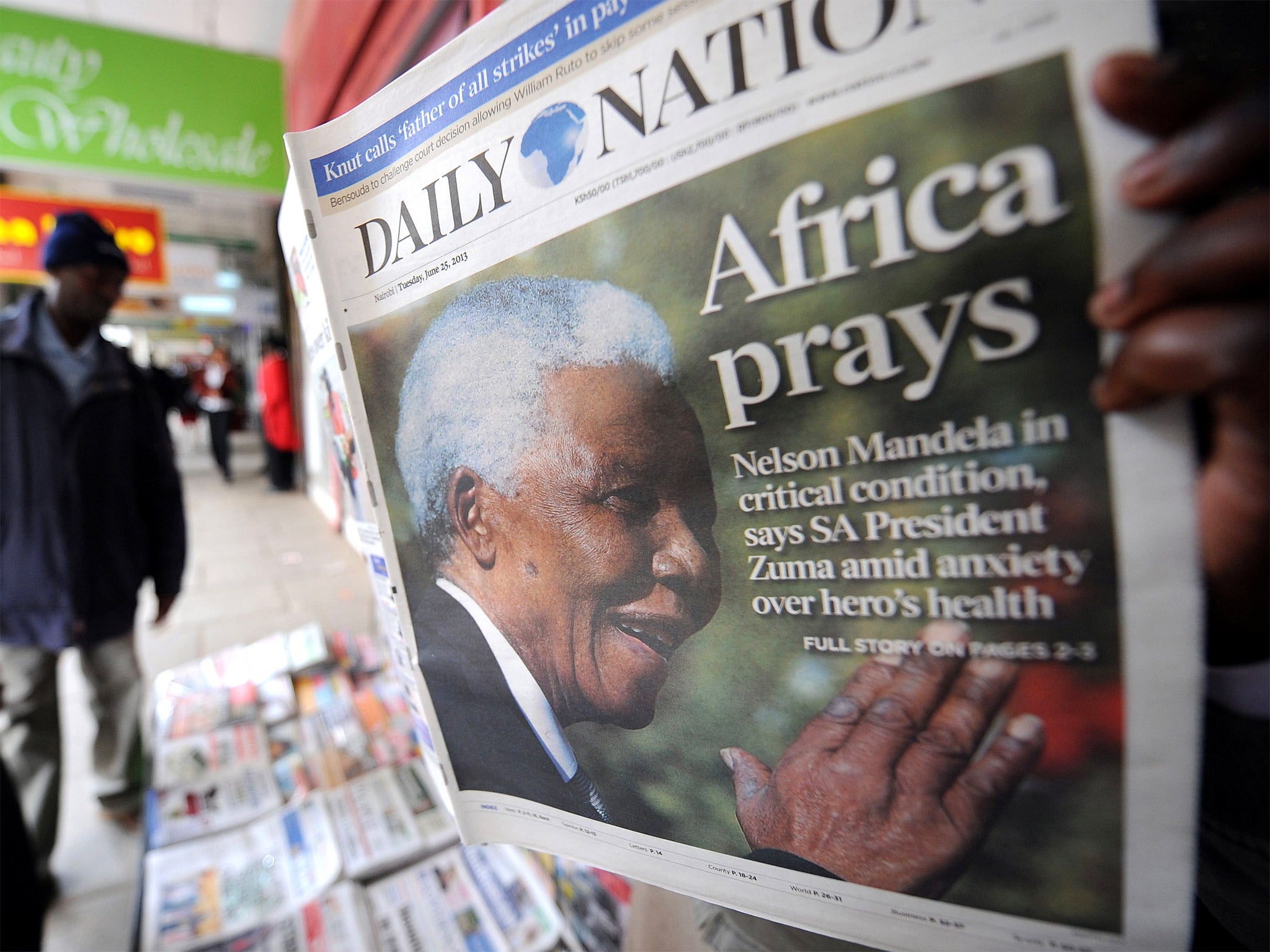Obama’s African tour overshadowed as Nelson Mandela remains in critical condition, as family is caught up in heated row
Daughter says that legendary leader smiled and opened his eyes when she told him of US President's visit

Your support helps us to tell the story
From reproductive rights to climate change to Big Tech, The Independent is on the ground when the story is developing. Whether it's investigating the financials of Elon Musk's pro-Trump PAC or producing our latest documentary, 'The A Word', which shines a light on the American women fighting for reproductive rights, we know how important it is to parse out the facts from the messaging.
At such a critical moment in US history, we need reporters on the ground. Your donation allows us to keep sending journalists to speak to both sides of the story.
The Independent is trusted by Americans across the entire political spectrum. And unlike many other quality news outlets, we choose not to lock Americans out of our reporting and analysis with paywalls. We believe quality journalism should be available to everyone, paid for by those who can afford it.
Your support makes all the difference.Barack Obama arrives in Africa for a tour which threatens to be overshadowed by the precarious health of Nelson Mandela, who is still in a critical condition in a South African hospital.
Mr Mandela’s daughter Zindzi said that her father smiled and opened his eyes when she told him of Mr Obama’s visit, but should Mr Mandela’s condition worsen – as South Africa’s President Jacob Zuma has warned it might – the US delegation would find itself a sideshow in a global outpouring of grief.
The US President’s return to the continent is seen by many observers as overdue. The first African-American in the White House stopped over in Ghana long enough in 2009 to say: “I have the blood of Africa within me.” But he has not been back since.
He begins a five-day visit in Senegal, chosen as a nod to its successful elections last year. He then heads to South Africa before flying on to Tanzania.
The minutely orchestrated trip will involve tight security amid threats of protests from some South African Muslim groups and trade unions, which blame South Africa’s problems on global capitalism. US warships will shadow the delegation and bulletproof glass will be trucked in to protect the hotels where he stays. A planned safari was cancelled after it was considered too cumbersome to have snipers at the ready to kill any animals that got too close.
In a foreword to the 2010 collection of Mr Mandela’s writing Nelson Mandela: Conversations With Myself, Mr Obama cited the legendary South African leader as his inspiration for getting involved in politics while a college student in California. He wrote that he would occasionally seek the older man’s advice in brief telephone conversations, which taught him that “underneath the history that has been made, there is a human being”.
The pair are not expected to meet, a spokesperson for the South African presidency said. Mr Obama is, however, due to visit Robben Island, the former prison colony where Mr Mandela contracted the tuberculosis that is blamed for his recurring lung infections. It will be Mr Obama’s second visit to the island off Cape Town. He will also be speaking a few streets away from Mr Mandela’s hospital in Pretoria on Saturday.
Yesterday, members of Mr Mandela's family held a meeting with elders of the Thembu tribe over "sensitive family matters" arising from his long hospitalisation.
Mr Mandela's children, grandchildren, family elders and local members of the Thembu royal council - which the Mandela family forms part of - met in the village of Qunu for a discussion that is reported to have become "heated".
Although the specific reason for the meeting has been withheld, family elder Napilisi Mandela told South African media it was called to discuss “delicate matters pertaining to the anti-apartheid icon”, while another relative detailed the last minute nature of the gathering, stating: “many of us in the village were only told this morning”.
President Obama's tour is designed to be a reminder of America’s soft power on the continent. Despite being overtaken by China, whose trade with Africa is now worth double the $100bn relationship with the US, America and its part-African President retain huge popularity. The US has 51 embassies to China’s 41 and is active in military efforts to contain the threat of Islamic extremists from Nigeria and Mali to the Horn of Africa.
Join our commenting forum
Join thought-provoking conversations, follow other Independent readers and see their replies
Comments